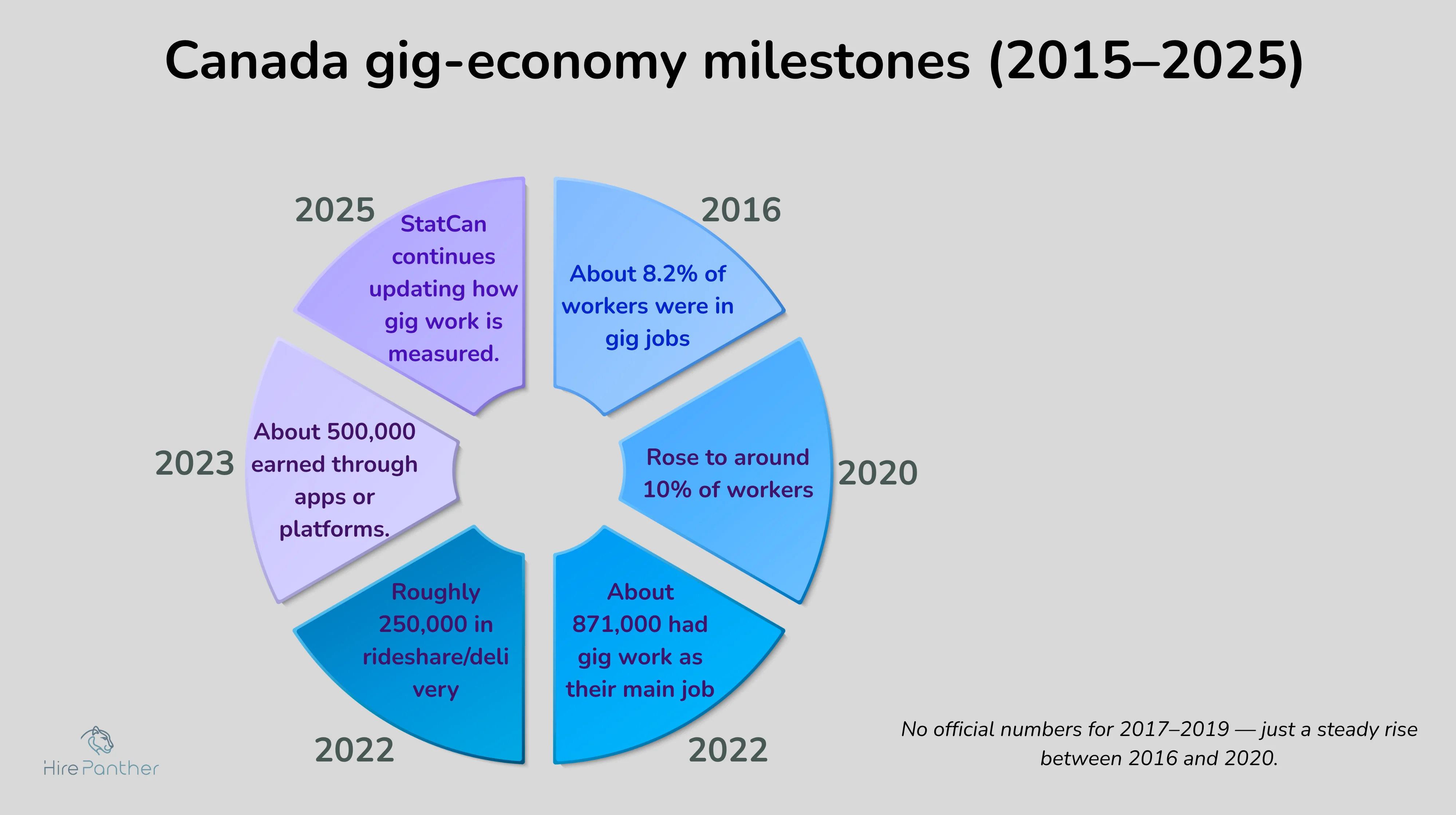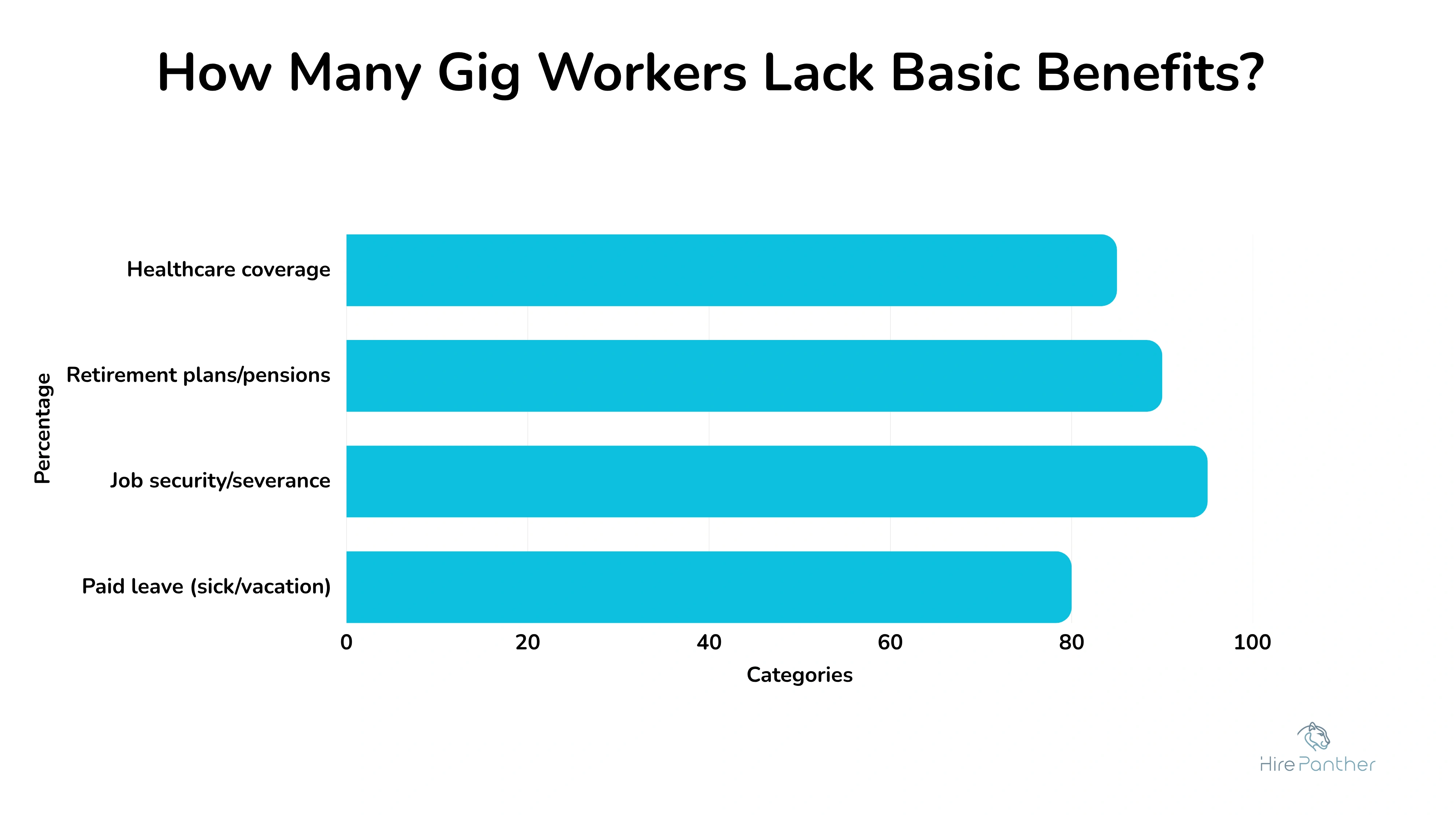Is Gig Work Sustainable Long-Term? Experts Weigh In
- 14 Sep, 2025

Is Gig Work Built to Last?
Gig work has grown rapidly in Canada, offering flexibility and new income opportunities—but is it sustainable in the long run? As more Canadians turn to freelance and contract work, economists, labor experts, and policymakers are evaluating its viability.
In this article, we explore expert perspectives on whether gig work can support a stable and fair employment future.

The Gig Economy Will Continue to Expand
Dr. Sarah Monroe, Economist, University of Toronto:
“The data shows a clear shift. We’re not just seeing temporary interest—freelancing is becoming a core part of the Canadian labor force. With proper regulation, it can thrive long-term.”
Factors supporting sustainability:
- Worker preference for flexibility
- Advances in digital platforms and job matching
- Growing client demand for scalable services
Worker Protections Are Key to Longevity
Jordan Malik, Employment Lawyer:
“Gig work won’t be sustainable unless it includes better legal protections. That means fair pay, dispute resolution, and access to benefits—without turning every freelancer into a full-time employee.”
Key concerns:
- Lack of healthcare and retirement plans
- No job security or severance protection
- Rising cost of living in urban areas

Platform Accountability Must Improve
Lisa Chen, Tech & Labor Policy Analyst:
“Platforms profit from freelancers but carry little accountability. To make gig work viable, platforms need to share responsibility for ethical practices and fair treatment.”
Suggestions:
- Transparent algorithms and ratings
- Improved dispute resolution
- Community-led standards enforcement
Long-Term Sustainability Factors
Economic:
- Strong demand in sectors like tech, wellness, education
- Diversified income opportunities through multi-platform usage
Social:
- Growing acceptance of non-traditional work
- Communities forming around co-working and online support groups
Technological:
- Automation reducing administrative burdens
- AI-powered pricing, scheduling, and matching systems
Policy:
- Possible introduction of portable benefits
- Clearer classification laws (employee vs contractor)

What Needs to Happen Next
For gig work to be sustainable, Canada must:
- Support innovation in freelance-friendly infrastructure
- Expand access to benefits for independent workers
- Encourage ethical gig platforms through incentives and regulation
- Provide freelancers with better education on rights and financial planning
Conclusion: Sustainability Is Achievable—With the Right Support
The future of gig work in Canada depends on thoughtful collaboration between workers, platforms, and policymakers. With proactive steps, gig work can become a sustainable, inclusive, and empowering employment model.
